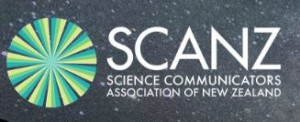What is the role of publicly-funded researchers in the 21st Century? What are their responsibilities in relation to how their research relates to the stakeholders, end-users and members of the public who will be affected by the outcomes?
These are live questions for all researchers wishing to improve the quality of their research and its social and economic impact on wider society.
They’re also questions that I’ll be exploring in New Zealand in a few weeks alongside Professor Nancy Longnecker from the Centre for Science Communication at the University of Otago.
As part of a research visit to Dunedin I’ll be running several workshops alongside Nancy.
I’m also delighted to have been invited to deliver the opening address at the Annual Science Communicators of New Zealand (SCANZ) Conference. In that talk, at Otago Museum, I’ll be exploring the following issues:
What has science communication ever done for us?
As science communicators we live in exciting and challenging times. While effective communication remains at the heart of good science, what we mean by this has evolved rapidly in recent years.
Digital technologies, profoundly social in use, have expanded (not replaced) the repertoires of science communicators and extended the potential for a greater number of stakeholders to participate.
On a similar timescale, policy makers have intervened to reshape the ways that universities relate to, and are informed by, wider society. Talk of engagement, openness, responsiveness and citizenship now permeate discussions about contemporary science communication.
These ongoing changes raise important issues for science communicators. What measures can we put in place to support those communicating, to recognise and reward excellence, and to show the continued relevance of our work as communication professionals?
In this keynote address, I will explore these issues in the context of a programme of organisational change designed to embed the practices of communication and engagement within the culture of research at the Open University, UK.



